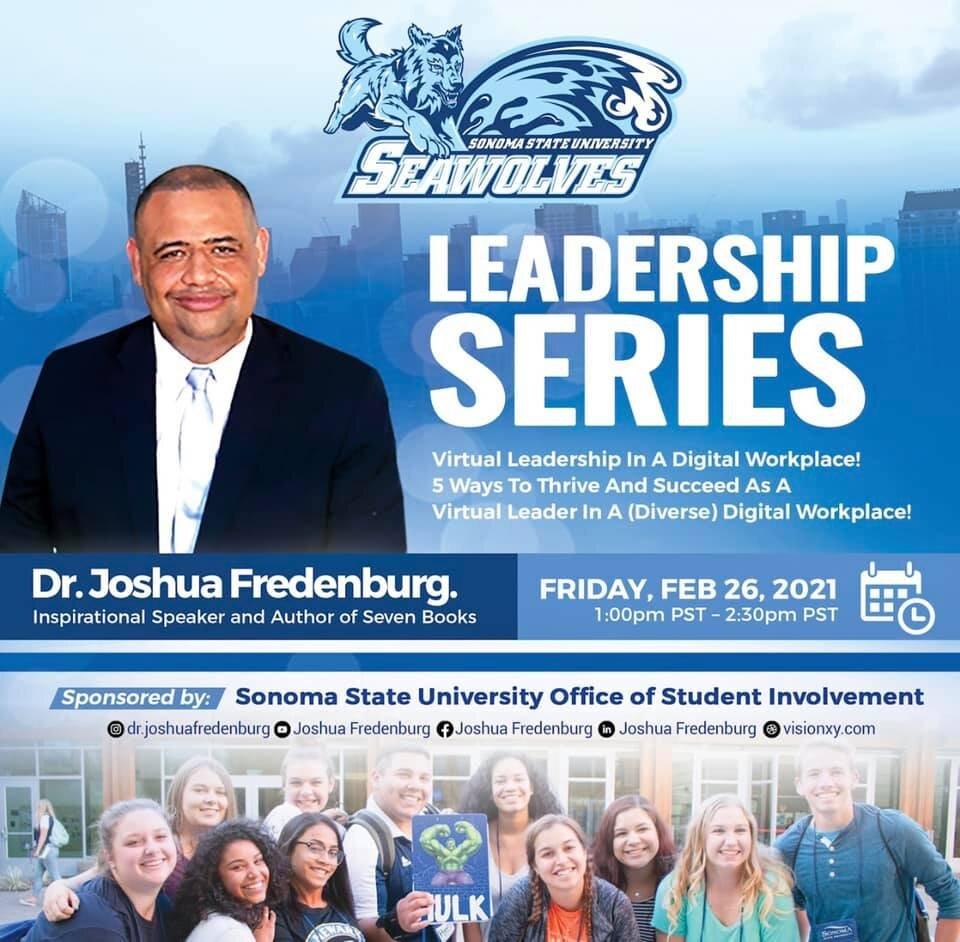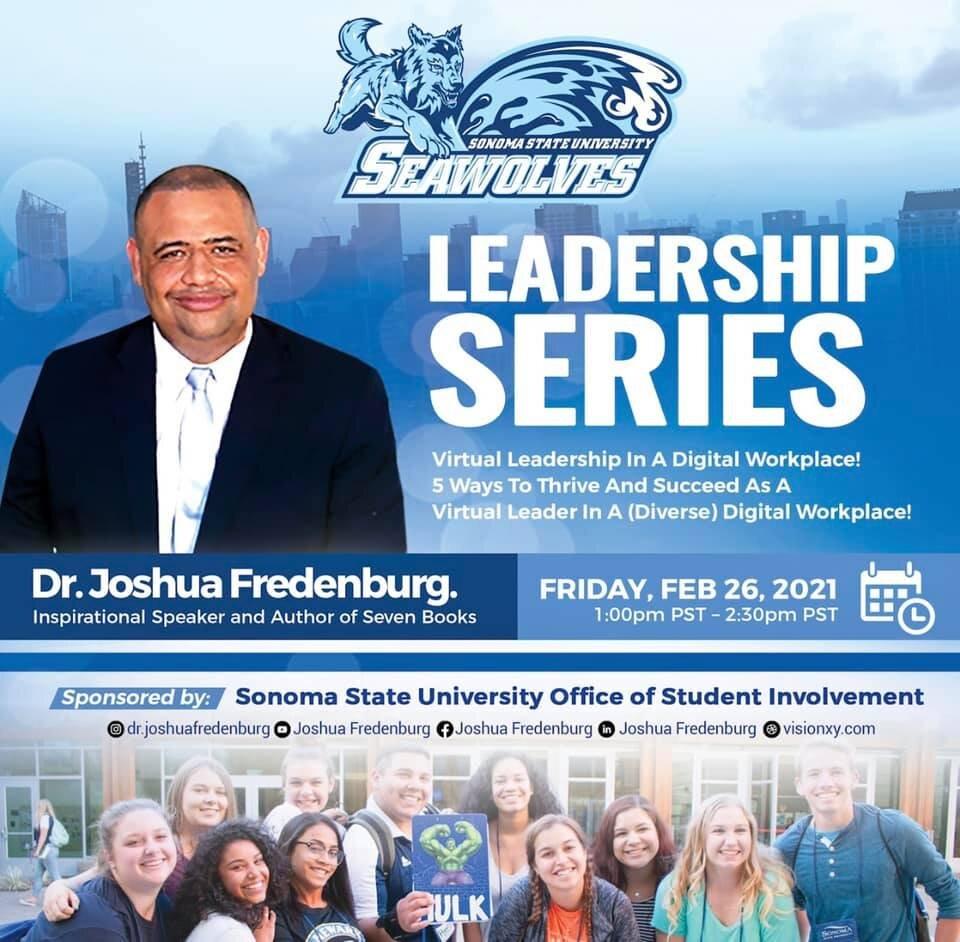Dr. Joshua Fredenburg, an internationally acclaimed keynote speaker, is traveling the country to present workshops while facilitating and training students to reach their fullest potential as a leader.
This week, Fredenburg hosted a seminar called “Leading In A Virtual Environment.” During this hour and a half presentation, he recalled how almost a year ago in Mar. 2020 he was about to board a plane to speak at a college when he got the call that his seminar was canceled due to the coronavirus. In the following days, he found that his entire spring calendar was canceled and his entire career was put on pause.
He, like all of us, went home and relaxed on the couch for days, weeks, and months to come. Fredenburg then recalled that Martin Luther King Jr. once said that, “the ultimate measure of a man is not where he stands in moments of comfort and convenience, but where he stands at times of challenge and controversy.” From this quote, he was able to craft a new way of public speaking by embracing the “virtual adversity” and picked up on speaking via Zoom.
To thrive and succeed with being a leader, you need to get acclimated to doing things virtually. The differences between virtual and in-person leadership is that the communication and organization of leading look different because of the new integration of technology.
Many companies have adopted the “work-from-home model”, and have embraced it so much that they are offering it as a future alternative post-pandemic. Jack Dorsey, the co-founder and CEO, of Twitter talks about ”remote working becoming a real option for businesses moving forward,” furthering Fredenburg’s emphasis on becoming well-versed in virtual leading.
“Remote managers need to consider things like imposter syndrome, communicating intentionally with their remote teams, finding ways to talk about their productivity and communicating in writing rather than face-to-face chats” says Becca Van Nederyan, a help scout that Fredenburg references during the presentation. Fredenburg goes on to list interesting statistics about working in teams. According to Fredenburg, 46% of people working in teams feel isolated from their team, while 30% said it is challenging to collaborate with them. Additionally, 39% of workers did report feeling a “greater sense of belonging” when they were checked-in on personally, which led them to be more likely to reach their potential.
Through Fredenburg’s experience this past year, he has been able to reach students all over the country virtually and inspire them to embrace the new virtual world that we have been living in.
To be a better virtual leader the first step is to identify the existing and likely problems you may face. To combat these problems, you must create a set of solutions to overcome these challenges and help keep your team accountable to implement them. Fredenburg went on to note that, “to be able to thrive as a virtual leader you must evaluate your entire personal and leadership rhythm, innovate and create new rhythms that work for you, and consistently modify, assess and improve yourself and your techniques.”
The keynote speaker then goes on to ask whether we see ourselves as an adaptable or agile leader, giving the following example of what a combination of both are. An adaptable or agile leader is someone who is “not only innovative, solution-focused, and socially aware, but also someone who has an ability to modify or change their methods, behaviors, style, or communication to produce positive results.”
Many leaders are set in their ways, which doesn’t give them a chance to learn something from their team, which is why being an adaptable and agile leader creates new possibilities and potential for growth.
Directly following this segment of the seminar, a quote from Charles Darwin pops up on the screen. It reads, “It is not the strongest of the species that survives, nor the most intelligent. It is the one that is most adaptable to change.” The best leaders that are going to come out of this pandemic are the ones that embraced the changing times and are able to come out much stronger.
As the seminar came to a close, Fredenburg put a lot of emphasis on making sure that you are taking care of yourself. Being an all-encompassing leader does not mean you have to burn yourself out, as you can’t pour from an empty cup.
Throughout the seminar, Fredenburg kept the audience engaged, even on Zoom. He was able to do this by running polls, playing Kahoot, as well as Wheel of Fortune Live. Fredenburg was able to lead the presentation, while also keeping the audience engaged, displaying great qualities of a virtual leader. If you would like to find out more about leading virtually, visit his website at www.visionxy.com.
COURTESY // Facebook
Dr. Joshua Fredenburg spoke with Sonoma State students via Zoom to show how leading in a virtual environment can be efficient.





































